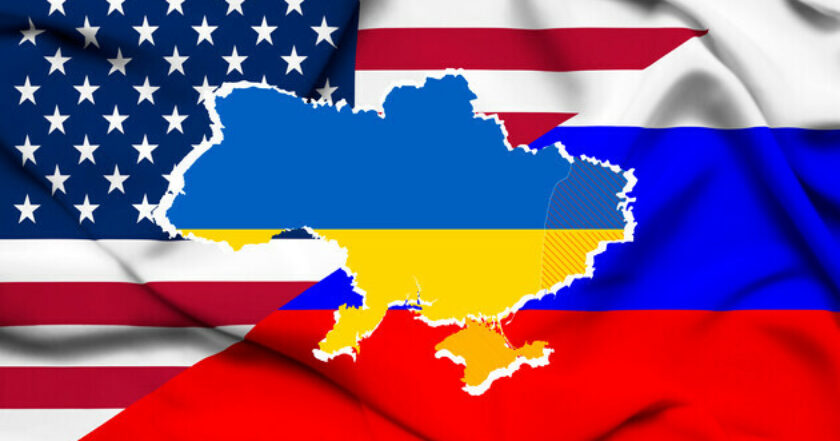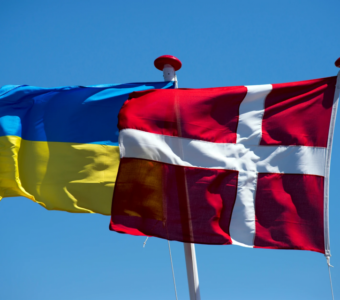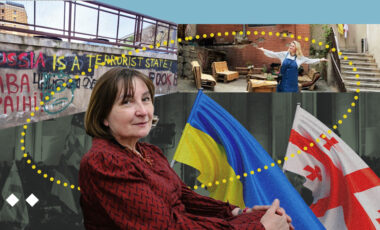On Ukraine, U.S. and Russia Wage Signaling War to Avert Actual War - the New York Times

Each side is trying to convince the other that the price of conflict is too high. It is a complex game played with deliberate ambiguity, raising the risk of lethal miscalculation, the media outlet says.
The New York Times published an article about the "high-stakes game" between Moscow and Washington, where Ukraine is caught in the middle of events. The author argues that all the decisions and actions now being taken by both sides, while signaling the possibility of a full-scale war, are in fact aimed at averting it.
Here is an excerpt from the article:
"As their standoff over Ukraine continues, Moscow and Washington are playing an increasingly high-stakes, increasingly complex game of signaling to try to secure their aims without firing a shot.
Traditional diplomacy is just one component of this dance. Troop movements, sanctions warnings and legislation, embassy closures, leader summits, and intelligence leaks are all aimed, in part, at proving each country's willingness to carry out certain threats or accept certain risks.
It is a form of high-stakes negotiation, conducted in actions as much as words, meant to settle the future of Europe just as conclusively as if decided by war, by telegraphing how a conflict would play out rather than waging it directly.
Russia, by shifting thousands of troops from its far east to Ukraine's border, hopes to convince Washington and Kyiv that it is willing to endure a major war to secure its demands by force, so those countries are better off meeting Russian demands peacefully.
The Biden administration, by stating that a Russian invasion may be imminent, even closing its embassy in Kyiv, and vowing economic retaliation, signals that Moscow cannot expect desperate American concessions, making further escalation less worthwhile.
There have been a flurry of such gestures. Russia held Black Sea naval exercises, implying it could close off trade waters. President Biden issued joint statements with European leaders, conveying that they are not balking at American sanctions threats that would harm Europe, too.
But the more both sides try to make their threats credible, for example by relocating troops, the more they heighten the risk of a miscalculation that could careen out of control.
Each side also cultivates ambiguity about what it will or will not accept, and will or will not do, in hopes of forcing its adversary to prepare for all eventualities, spreading its energies thin.
The White House has said that President Vladimir V. Putin of Russia could decide this week whether to invade, deflating Moscow's careful murkiness, while also demonstrating, especially to cautious Europeans, that any invasion would be driven by Russia, rather than in response to some outside provocation.
On Tuesday, Moscow moved to recreate confusion, withdrawing a handful of forces even as it continued nearby war games and as Mr. Putin accused Ukraine of genocide against its native Russophone minority. By feinting simultaneously toward de-escalation and invasion on Tuesday, Moscow builds pressure on the West to prepare for both.
"This dynamic is very volatile," said Keren Yarhi-Milo, a Columbia University political scientist who studies how countries signal and maneuver amid crises.
A range of factors particular to this crisis, she added — differing political cultures, multiple audiences, rising uncertainty — "makes the signaling in this case very, very difficult."
The result is a diplomatic cacophony nearly as difficult to navigate as war itself, with stakes just as high».
The New York Times also notes that the actions of Moscow and Washington are a kind of "persuasion game." The outlet notes that although neither side has misinterpreted the other's actions, as the tension continues, the likelihood of a wrong decision on either side increases.
"Every day that we're not resolving it, we are increasing the percentage chance that something will go wrong," said Dr. Yarhi-Milo, the international relations scholar.






















































